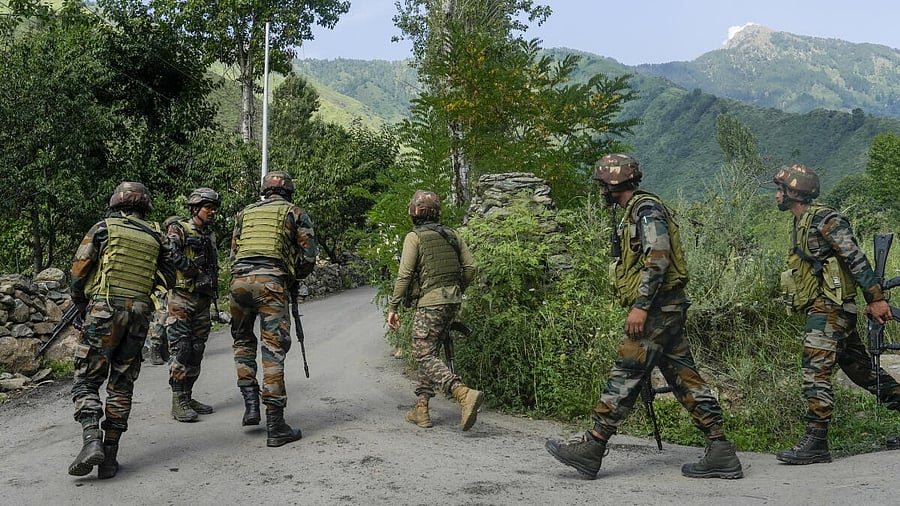
Credit: PTI Photo
Srinagar: In the thick forests of Jammu and Kashmir, a new kind of battle is playing out — one where the enemy vanishes before the fight is over.
Over the past more than two years, a striking pattern has emerged: high-stakes anti-terror operations in dense mountain belts are being called off after initial casualties, with most — sometimes all — of the terrorists slipping away.
A massive operation in the Akhal forests of south Kashmir’s Kulgam district was wound up on Monday, 11 days after it began on August 1. Security forces had credible intelligence about heavily armed militants holed up in the area.
Sources said the Army brought in its full technological arsenal — Heron and Hexacopter drones, quadcopters, even drone-mounted guns — yet the militants, believed to be hiding in mountain caves and natural hideouts, melted away after killing two soldiers and injuring several others.
The scene was eerily similar in September 2023 in Kokernag forests of Anantnag district, where a colonel, a major, and a deputy superintendent of J&K Police were killed in the initial round of gun battle. Despite a week-long siege, the terrorists— reportedly battle-hardened infiltrators from Pakistan — slipped through the net.
In May 2023, in Rajouri’s thick border forests, five soldiers died before the operation was called off.
Security experts say this is not just about terrain — it’s about the changing colour of militancy. “We are facing small, well-trained Pakistani groups who understand the terrain better than before, are heavily armed, and use caves and ravines like fortresses,” a retired counter-insurgency officer told DH. “They don’t fight to the last bullet — they strike hard, cause maximum damage, and then disappear.”
Unlike encounters in the villages and towns, where cordons can be sealed, these battles stretch across kilometres of steep ridges and dense foliage. Escape routes are plentiful, and the cost of pursuing militants deep into such terrain is often prohibitive in terms of troop safety.
“The trend points to a tactical evolution: high-impact ambushes followed by rapid withdrawal into terrain that swallows both sound and movement. For security planners, the challenge now is to adapt without walking into more deadly traps,” the officer added.
If the mountains have always been Kashmir’s silent witnesses, they are now also the militants’ most loyal allies.